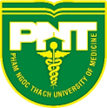Introduction Mental health literacy is crucial in today’s fast-paced and often stressful world. It involves understanding how to maintain mental well-being, recognizing the signs of mental health disorders, knowing where and how to seek help, and reducing stigma associated with mental health issues. This blog delves into the significance of mental health literacy and how it can be enhanced for the betterment of individuals and communities.
What is Mental Health Literacy? Mental health literacy encompasses several aspects: the knowledge and beliefs about mental disorders which aid their recognition, management, and prevention; attitudes which facilitate recognition and appropriate help-seeking; and knowledge of how to seek mental health information.
The Stigma of Mental Health and Its Challenges One of the biggest hurdles in improving mental health literacy is the stigma surrounding mental health issues. This stigma often leads to a lack of acknowledgment, denial, or embarrassment about mental health problems, hindering individuals from seeking help.
Strategies to Improve Mental Health Literacy
- Education and Awareness Programs: Implementing educational initiatives in schools, workplaces, and communities to spread awareness about mental health conditions, their signs, and symptoms.
- Promoting Open Conversations: Encouraging open discussions about mental health to normalize these conversations and reduce stigma.
- Access to Resources: Providing easy access to mental health resources and information, including helplines, counseling services, and online platforms.
- Training Gatekeepers: Training teachers, employers, and community leaders to identify signs of mental distress and guide individuals to appropriate help.
- Policy and Advocacy: Advocating for policies that support mental health initiatives and funding for mental health education and services.
Benefits of Improved Mental Health Literacy
- Early Detection and Intervention: Increased literacy can lead to early detection and intervention, which is crucial for effective treatment and recovery.
- Reduced Stigma: As understanding improves, stigma around mental health issues decreases, fostering a more supportive and empathetic society.
- Better Mental Health Outcomes: With appropriate knowledge and resources, individuals can manage their mental health more effectively, leading to better overall mental health outcomes.
- Empowered Communities: Informed communities are better equipped to support individuals with mental health challenges and to create environments conducive to mental well-being.
Conclusion Enhancing mental health literacy is not just a health imperative but a societal need. By educating ourselves and others, challenging the stigma, and advocating for better mental health resources and policies, we can create a more understanding, supportive, and mentally healthy society. Mental health is an integral part of overall well-being, and it’s time we give it the attention and understanding it deserves.
